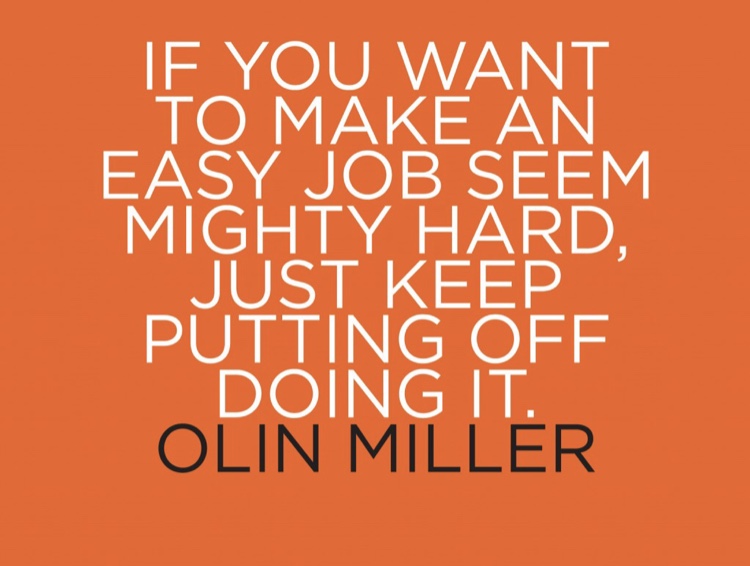Just Do It
We often consider ourselves lazy when we procrastinate. But according to researchers, this is simply not true. Procrastination isn’t caused by a lack of motivation or an inability to manage time; it’s a way of coping with negative emotions brought on by having to do certain tasks that cause boredom, anxiety, insecurity or frustration (such as cleaning out the attic or writing a difficult paper). Scientists call it “short-term mood repair.”
The immediate relief of putting off an unpleasant activity is what makes it addictive. We feel better in that moment, but the good feelings don’t last. In fact, procrastinating and ruminating over it just adds to the negative associations we have with certain tasks and causes us to continue to avoid them. Even if we realize that procrastinating will create anxiety for us in the future, our brains are wired to be more concerned with removing the threat in the present.
Over time, repeated procrastination affects productivity. Even if you get things done, they’re not necessarily the most important ones. Focusing on the least offensive items on your to-do list will make you feel accomplished. However, if it’s a recurring behavior, then it’s false reassurance because you’ve put important items on the bottom of the list. It's hard to believe but procrastinating can affect your health, causing depression, anxiety, lower immunity and chronic illness.
Technique of the week: Don’t beat yourself up—everyone procrastinates. But to prevent it from becoming a bad habit you need to be aware of what you typically keep putting off. Think about the benefits of completing the task now and how good you’ll feel when it’s done. Take that first step, regardless of whether you’re in the mood or not. Once you get started, you’ll be inspired to continue!

